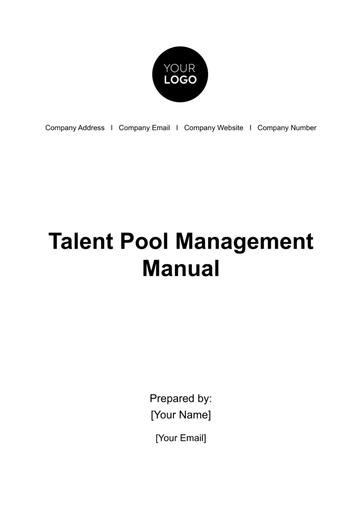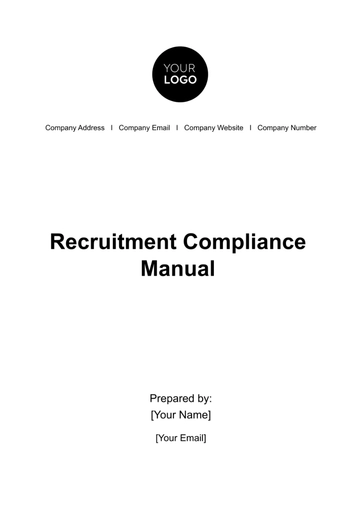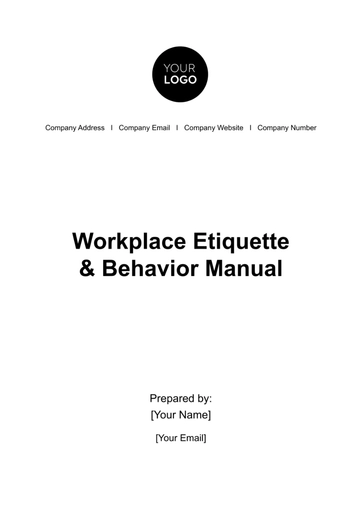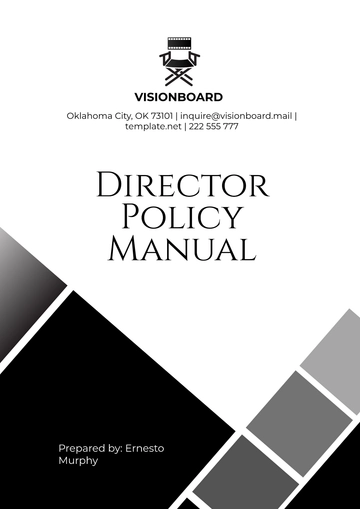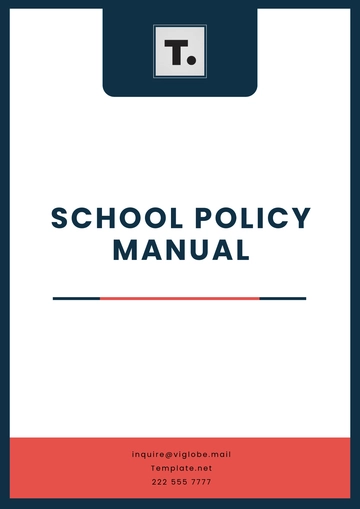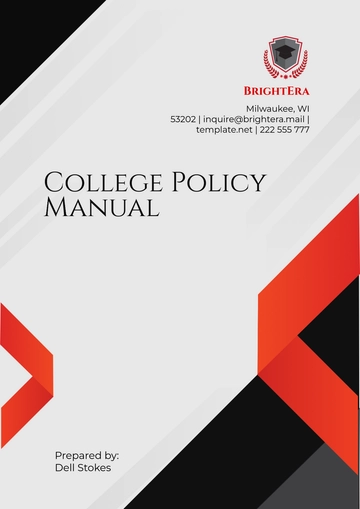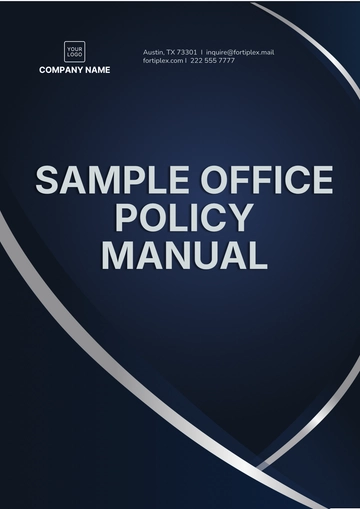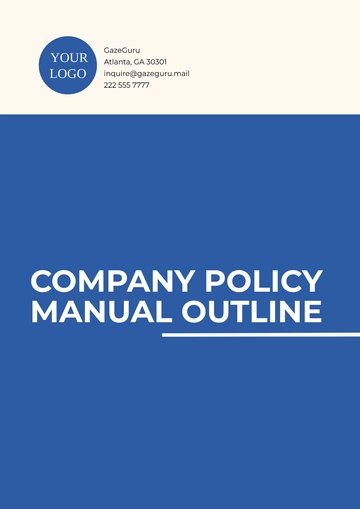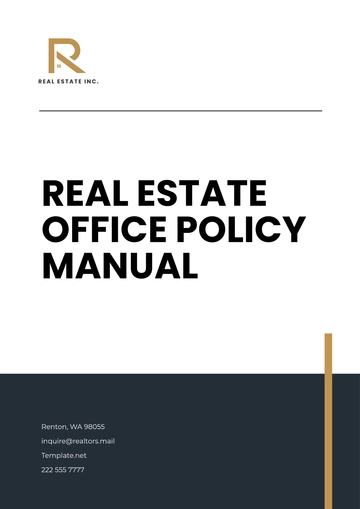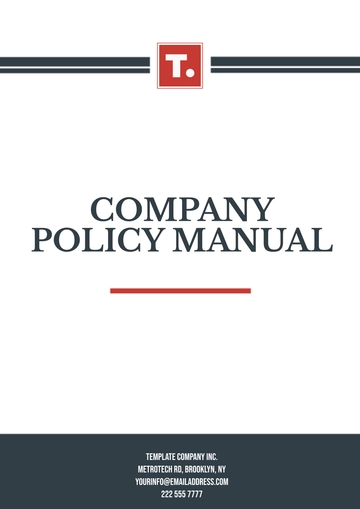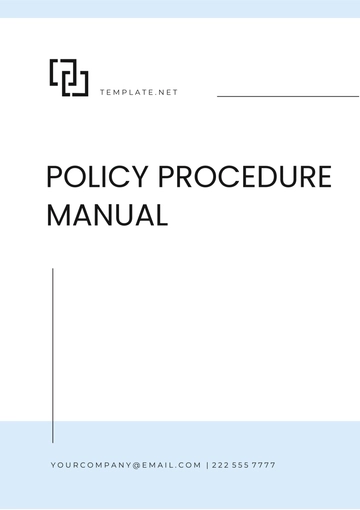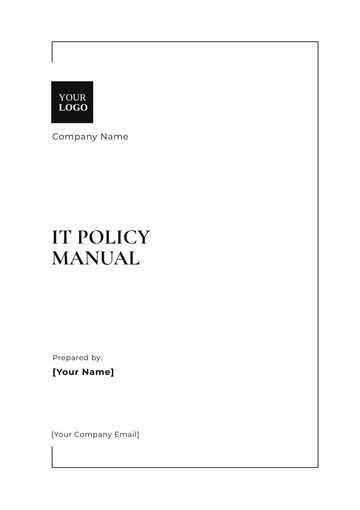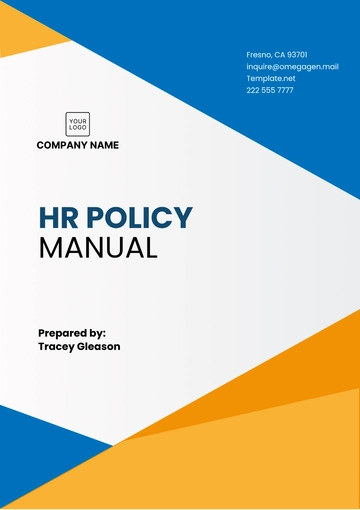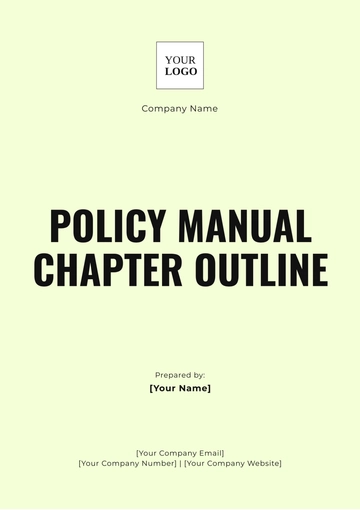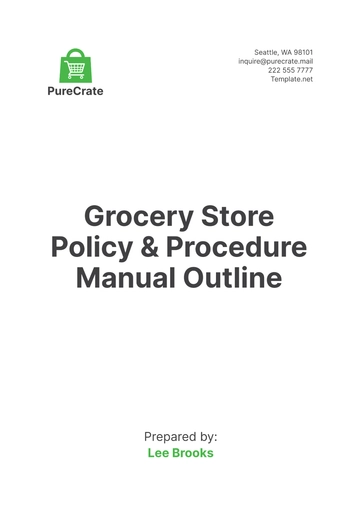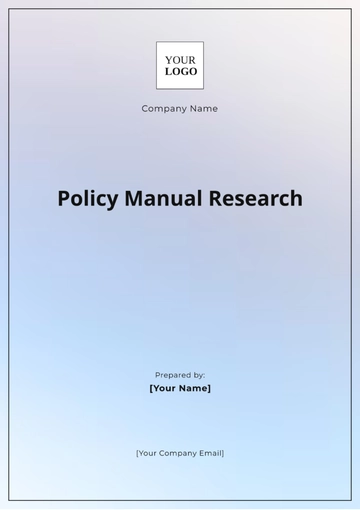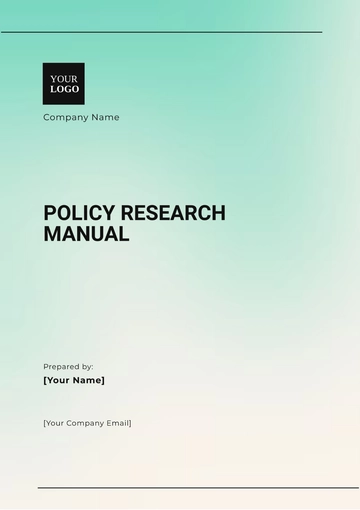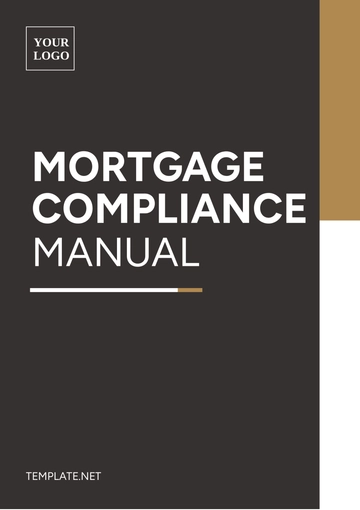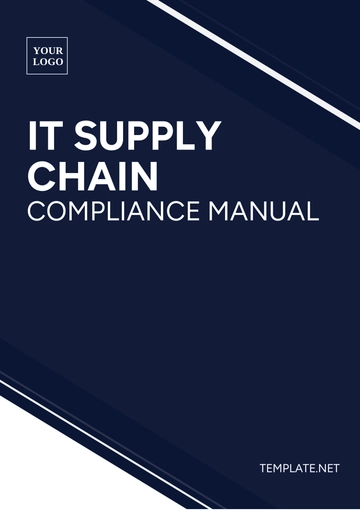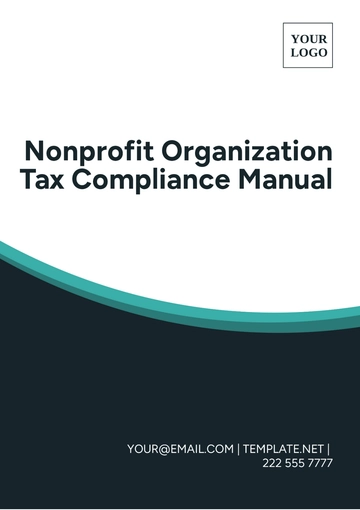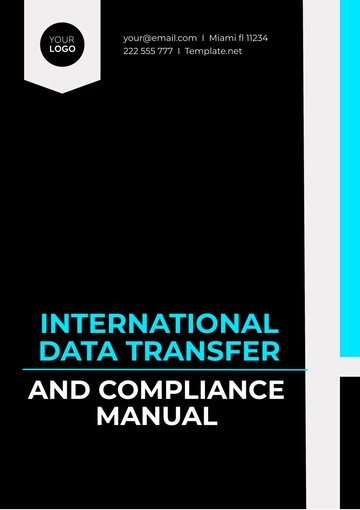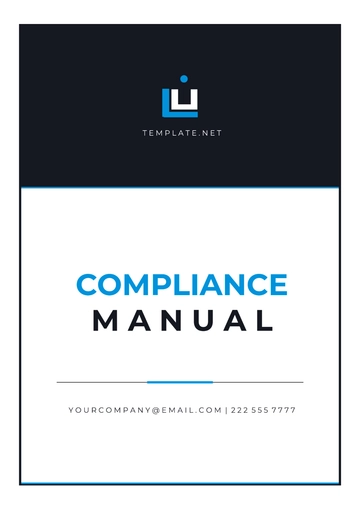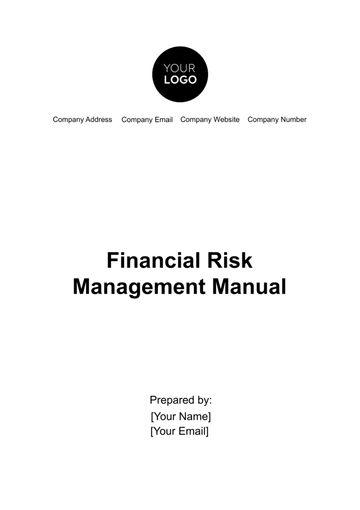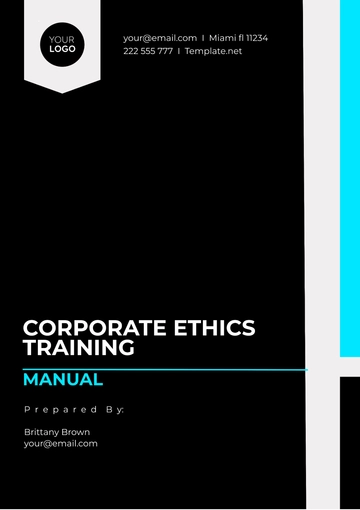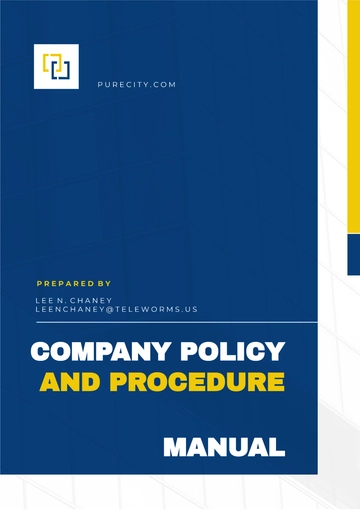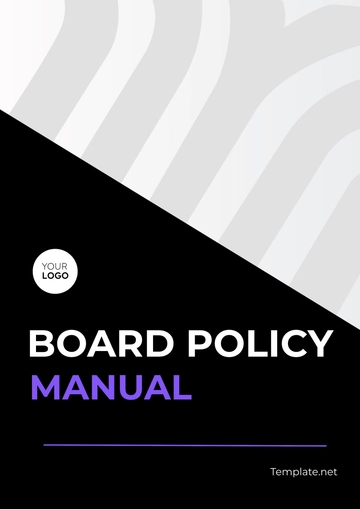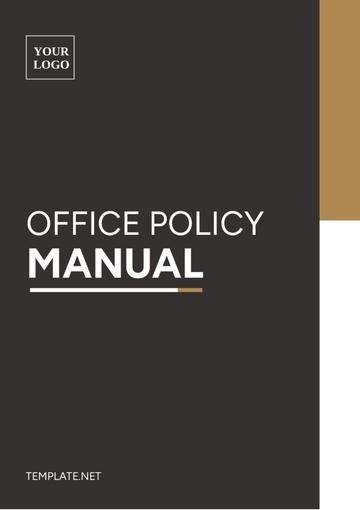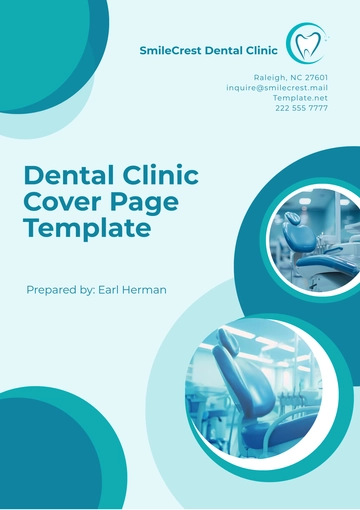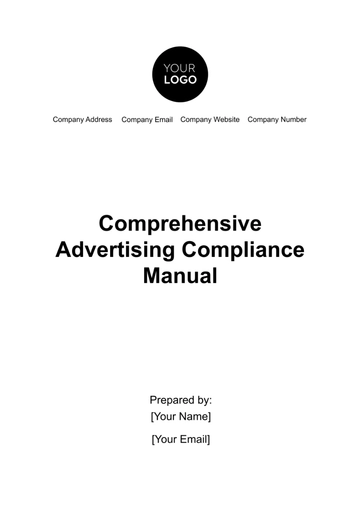Free Interview Protocol Manual HR
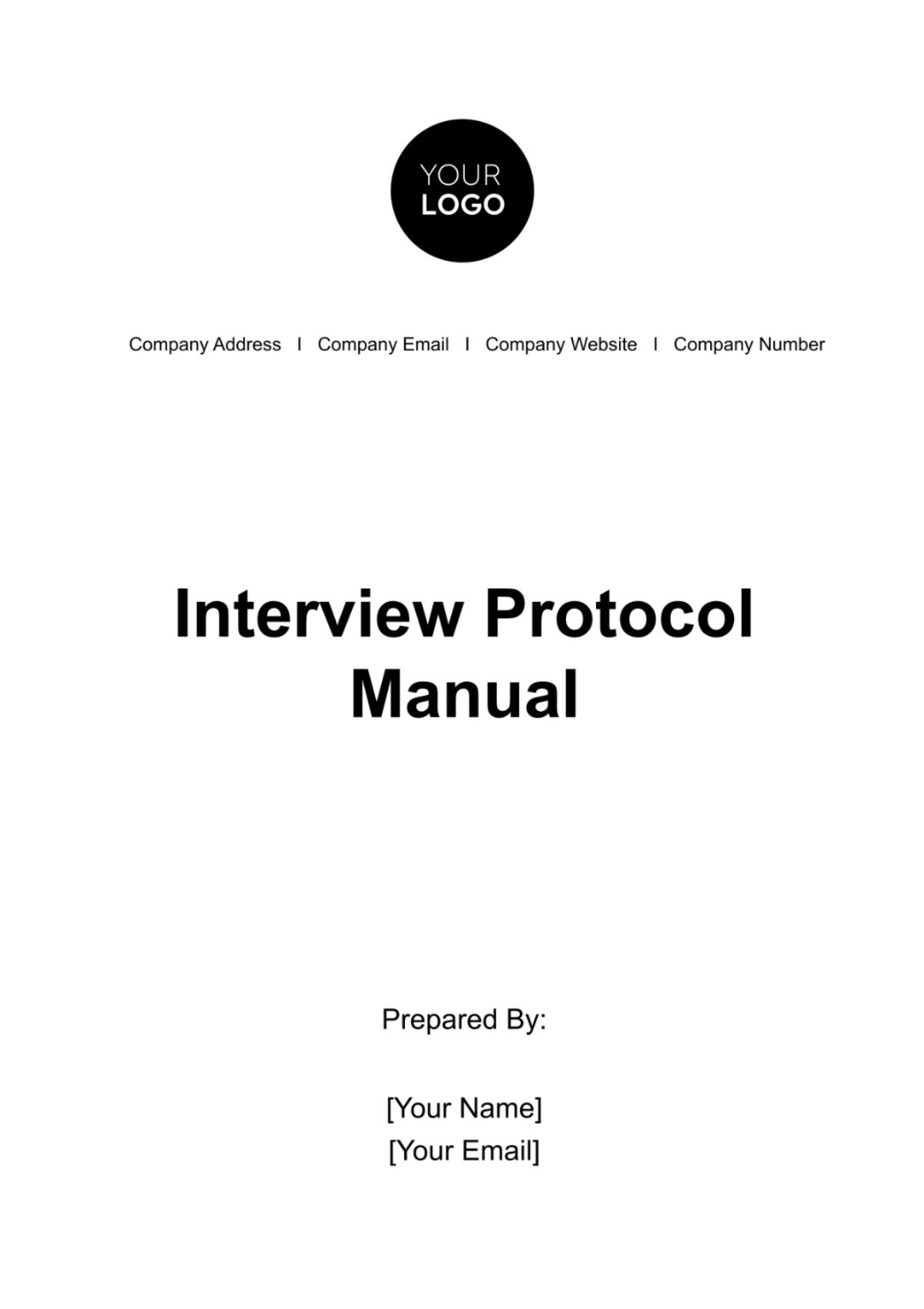
Table of Contents
1. Introduction......................................................................................... 2
2. Objectives............................................................................................. 2
3. Interview Types................................................................................... 3
4. Interview Process................................................................................. 5
5. Interviewer Guidelines........................................................................ 5
6. Candidate Assessment Criteria.......................................................... 6
7. Interview Documentation................................................................... 7
8. Confidentiality..................................................................................... 8
9. Compliance and Regulations.............................................................. 8
10. Appendices......................................................................................... 9
10.1 Sample Interview Questions..................................................... 9
10.2 Interview Scoring Sheet.......................................................... 10
Introduction
Welcome to the Interview Protocol Manual prepared by Human Resources, the definitive guide for conducting interviews within our organization. As we strive for excellence in all aspects of our operations, it is imperative to ensure that our hiring process is not only fair and unbiased but also effective in identifying the best talent. Our commitment to maintaining the highest levels of professionalism is manifested through a rigorous, transparent, and equitable interview process. This manual serves as the cornerstone to ensure that all individuals involved in the interviewing process, from HR personnel to departmental managers and executives, are aligned in their approach and execution.
Our goal is to standardize interview procedures across the company to ensure each candidate is given a fair chance and is assessed based on a consistent set of criteria. This uniformity helps to remove unconscious bias from the equation, ensuring that decisions are made solely based on merit. Additionally, adherence to this manual will help safeguard the company against potential legal pitfalls related to hiring, such as discrimination or unfair labor practices.
The Interview Protocol Manual is designed to be comprehensive, covering everything from the different types of interviews we conduct, the key stakeholders involved, and the protocols for documentation and compliance. Importantly, the manual is also reflective of our compliance with local, state, and federal employment laws. These laws are not just a framework but a code of ethics that we internalize and practice daily.
By following the guidelines laid out in this manual, you are contributing to a hiring process that is not only legally sound but also reflective of our organizational values of integrity, equality, and excellence. We believe that a standardized, fair, and effective interview process is key to building a workforce that is talented, diverse, and committed to contributing to the company's vision and goals.
We appreciate your cooperation and commitment to maintaining the highest standards in our hiring practices. Thank you for being a part of this important organizational endeavor.
Objectives
The objectives of this Interview Protocol Manual are multi-faceted and aim to meet the diverse needs of both the organization and its potential hires. By adhering to this guide, we achieve several crucial aims that contribute to our operational efficiency and ethical standards. Below are the specific objectives elaborated:
To Standardize Interview Procedures: One of the main goals of this manual is to ensure uniformity in how interviews are conducted across all departments. Standardized procedures eliminate any room for arbitrary judgments, thereby ensuring each candidate receives a fair and unbiased evaluation. This is particularly important for larger organizations like ours where multiple departments are involved in the hiring process. By providing a blueprint for what to expect, how to conduct interviews, and what criteria to consider, we remove the potential for discrepancies and unfair biases, creating an equitable environment for all candidates.
To Comply with Legal Standards: Compliance with legal standards is not merely an obligation but a commitment to ethical conduct. By following the guidelines set forth in this manual, we ensure that our hiring process adheres to local, state, and federal employment laws. This includes non-discriminatory practices, fair evaluation criteria, and appropriate documentation among other factors. Ensuring legal compliance is a shared responsibility, and this manual serves as a tool to help interviewers navigate the complexities of employment laws.
To Identify Top Talent: The ultimate objective of any interview process is to identify and select the most capable candidates. Through a systematic and structured approach as outlined in this manual, we increase our chances of attracting and selecting individuals who not only have the necessary qualifications but also fit well within our company culture. By having a consistent set of criteria and a comprehensive evaluation system, we can more accurately gauge the abilities, competencies, and potential contributions of each candidate, thereby making informed hiring decisions.
By meeting these objectives, we foster a hiring environment that is both equitable and effective, aligning closely with our organizational goals and values.
Interview Types
The interview process at Human Resources is structured in multiple phases to provide a comprehensive assessment of each candidate. Each type of interview serves a specific purpose and is conducted by designated personnel. This multi-step approach allows us to evaluate candidates holistically, from technical skills to cultural fit. Below are the types of interviews we conduct, along with details about their purpose and responsible parties:
Initial Screening: The initial screening is usually the first point of contact between the candidate and our organization. Conducted either by phone or video call, this stage aims to verify the basic qualifications and suitability of the candidate for the position in question. The screening is generally brief but essential, focusing on a candidate's availability, interest in the position, and basic qualifications such as educational background and work experience. The HR Manager is responsible for conducting this initial screening and deciding whether the candidate should move on to the next round.
Technical Interview: The technical interview is a more in-depth discussion that focuses specifically on the skills and expertise required for the role. It usually includes problem-solving exercises, technical questions, or even a practical task that pertains directly to the job description. Conducted either in-person or via video conferencing, the objective of this stage is to assess how well the candidate understands the role-specific challenges and tasks. The Department Manager, who has intricate knowledge of the job's requirements, is responsible for conducting this interview. The outcome often plays a significant role in deciding if the candidate advances to the final interview stage.
Final Interview: The final interview is the concluding step in the hiring process and is the most comprehensive. It seeks to assess the candidate’s broader fit within the company culture, goals, and team dynamics. It's not just about technical abilities but also soft skills like communication, adaptability, and teamwork. In many cases, this interview is also an opportunity for the candidate to meet potential colleagues and get a glimpse into the work environment. Grace Dawson, our CEO, usually conducts the final interviews. She evaluates the candidates based on their alignment with our company’s mission, vision, and core values, ensuring we select individuals who will positively contribute to our organizational goals.
By breaking down the interview process into these specialized types, we ensure that each facet of a candidate's qualifications and character is examined, leading to more informed and balanced hiring decisions.
Interview Process
Navigating the interview process can be complex for both candidates and interviewers. At Human Resources, we aim to make this process as streamlined and transparent as possible. To achieve this, we have established a structured interview process that is broken down into distinct stages. Each stage has a specific objective, duration, and responsible individual assigned to oversee its completion. This structure allows us to evaluate candidates in a comprehensive and efficient manner, ensuring that we are both thorough and respectful of everyone's time. The following table outlines the various stages of our interview process, providing a brief description of what each entails, the estimated time commitment, and the individual responsible for conducting or overseeing that stage.
Stage | Description | Duration | Responsible |
Candidate Shortlist | Review applications, resumes, and cover letters | 2 Days | HR Manager |
Initial Screening | 20-30 minute phone or video call | 30 Minutes | HR Manager |
Technical Interview | Focused on role-specific skills | 1 Hour | Department Head |
Final Interview | Evaluation of fit with company culture | 1-2 Hours | CEO, Grace Dawson |
Interviewer Guidelines
Conducting a successful interview is a critical component of the hiring process. The interviewer represents the company and plays a significant role in the candidate's decision to join us, as well as in our decision to extend an offer. Hence, it's essential that
interviewers adhere to certain guidelines to make the process as effective and unbiased as possible.
Arrive Prepared: It is crucial for the interviewer to come prepared for the interview. This means reading the candidate's application materials thoroughly, understanding the job description, and being clear on what skills and attributes are most important for the role. Preparation also includes setting up any necessary technology if the interview is conducted virtually and reviewing the planned questions to ensure they are appropriate and unbiased.
Stick to the Planned Questions: Having a set of predetermined questions is important to ensure consistency across interviews for the same role. This allows us to compare candidates fairly and helps in eliminating any potential bias. Interviewers should stick to these questions and avoid going off-script, unless there is a compelling reason to explore a topic further. It's important to make sure that all questions are job-related and do not violate any employment laws, such as asking about age, marital status, or other protected categories.
Take Detailed Notes: During the interview, taking detailed notes is invaluable. These notes will not only assist in post-interview evaluations but can also serve as a record that the interview was conducted fairly and in compliance with legal guidelines. Notes should be as objective as possible, focusing on the candidate's responses, skills, and qualifications as they relate to the job at hand. Avoid making any subjective or unrelated remarks.
By adhering to these guidelines, interviewers contribute to a more effective, transparent, and equitable hiring process.
Candidate Assessment Criteria
A crucial aspect of the interview process is the assessment of candidates based on a set of predefined criteria. This standardization ensures that each candidate is evaluated fairly and consistently across interviews, making the process transparent and credible. Below are the categories in which candidates will be evaluated, along with a scale for scoring. Interviewers should familiarize themselves with these criteria before conducting interviews to provide a coherent and comparable evaluation.
Technical Skills: This category assesses the candidate's ability to perform the tasks that are essential for the role. Whether it's coding for a software engineer or financial analysis for a business analyst, the technical skills are usually role-specific and are based on the requirements mentioned in the job description. Interviewers will score candidates on a scale of 1 to 5, with 1 being inadequate and 5 being exceptional.
Communication: Regardless of the role, the ability to communicate effectively is invaluable. This includes both verbal and written communication skills, the capacity to work well in teams, and the aptitude for presenting ideas clearly and persuasively. Again, candidates will be scored on a scale of 1 to 5, where 1 signifies poor communication skills and 5 represents excellent capabilities.
Cultural Fit: This criterion evaluates how well the candidate's values, beliefs, and behavior align with the company's culture. It’s important to note that 'fit' does not mean uniformity or similarity but rather the ability to thrive in our work environment. Factors to consider could include adaptability, collaborative spirit, and alignment with company values. Like the other categories, the scoring for this is on a scale of 1 to 5, where 1 means a poor fit and 5 means a strong fit with the company culture.
By scoring candidates in these categories, interviewers will be able to provide a comprehensive assessment that can be compared across the candidate pool. This contributes to making informed and balanced hiring decisions.
Category | Scale (1-5) |
Technical Skills | |
Communication | |
Cultural Fit |
Interview Documentation
Maintaining thorough and accurate documentation for each interview conducted is imperative for the integrity of the hiring process. Proper documentation serves multiple purposes: it ensures compliance with legal requirements, aids in internal audits, and provides valuable data for refining future hiring practices. Below are some specific guidelines that every interviewer should adhere to in order to keep the interview process transparent and reliable.
Keep a Record of All Interviews Conducted: Whether it's an initial phone screening or the final interview, it's essential to keep a complete record of the event. This includes the questions asked, the candidate's responses, the interviewer's observations, and the assessment scores based on predefined criteria. A standardized form or digital template should be used for this purpose to ensure consistency in how information is recorded.
File the Documentation in a Secure Location: Security is of the utmost importance when handling interview documentation as it often contains sensitive personal information of the candidates. All documentation should be stored in a secure digital repository that is accessible only to authorized personnel. This helps to protect against unauthorized access, loss, or damage to this critical information.
By adhering to these guidelines, interviewers contribute to a hiring process that is not only consistent and fair but also compliant with legal standards and best practices.
Confidentiality
Maintaining confidentiality during and after the interview process is a non-negotiable requirement for all interviewers at Human Resources. The privacy of candidates is not just an ethical obligation but also a legal necessity. Confidentiality encompasses all aspects of candidate information, ranging from resumes and contact details to answers provided during the interview and assessment scores. Failure to keep this information secure could result in legal consequences and damage to the company's reputation. Moreover, breaching confidentiality can also compromise the integrity of the hiring process, as leaks can unfairly advantage or disadvantage candidates. Interviewers should be trained in best practices for handling sensitive information and must be aware of the channels through which information should be securely shared within the organization. Therefore, safeguarding candidate information by maintaining strict confidentiality is paramount for ensuring a fair, lawful, and respected hiring process.
Compliance and Regulations
Adherence to the guidelines and procedures outlined in this Interview Protocol Manual is mandatory for all employees involved in the interviewing process. Failure to comply not only undermines the efficiency and effectiveness of our recruitment efforts but could also expose the company to legal risks. Non-compliance with this manual is considered a serious violation of company policy and may result in disciplinary action. Such disciplinary action can range from a formal warning to more severe consequences, including possible termination, depending on the gravity of the violation. It is, therefore, the responsibility of each interviewer to thoroughly understand and faithfully execute the protocols and guidelines laid out in this manual. Periodic audits and spot-checks may be conducted to ensure strict adherence. Violations should be reported immediately to higher management or the HR Department for appropriate action.
Appendices
Sample Interview Questions
General Questions
Can you walk us through your resume?
What interests you about this position?
Can you describe a challenging situation you've faced at work and how you handled it?
How do you prioritize your tasks?
What motivates you in your job?
How do you handle stress and pressure?
Technical Questions (For a Software Engineer role as an example)
Can you explain the concept of OOP (Object-Oriented Programming)?
Describe your experience with version control systems.
How would you approach debugging a complicated issue?
Can you provide an example of a project where you made a significant contribution?
Behavioral Questions
Tell me about a time when you had to work under tight deadlines.
Describe a situation where you had a conflict with a team member. How did you resolve it?
Can you tell me about a time you took the lead on a project?
Final Questions
Do you have any questions for us?
When are you available to start?
What are your salary expectations?
10.2 Interview Scoring Sheet
Criteria | 1 (Poor) | 2 (Fair) | 3 (Good) | 4 (Very Good) | 5 (Excellent) |
Technical Skills | |||||
Communication | |||||
Teamwork | |||||
Cultural Fit | |||||
Problem-solving skills |
Total Score: __ / 25
Comments:
Interviewer Signature:
Date:
Note: This scoring sheet should be completed immediately after the interview and filed in a secure location, in compliance with our confidentiality guidelines.
For inquiries, contact:
[Your Name], HR Manager
Email: [Your Email]
Phone: [Your Company Number]
- 100% Customizable, free editor
- Access 1 Million+ Templates, photo’s & graphics
- Download or share as a template
- Click and replace photos, graphics, text, backgrounds
- Resize, crop, AI write & more
- Access advanced editor
Discover unparalleled HR efficiency with the Interview Protocol Manual HR Template from Template.net. This editable and customizable resource, available exclusively on Template.net, empowers you to tailor interview protocols to your company's unique needs. Editable in our Ai Editor Tool, it ensures a seamless and personalized HR experience. Elevate your hiring process effortlessly.
